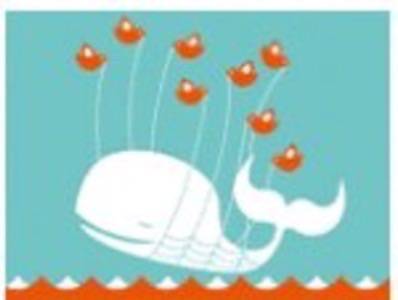It started with grumbling at the end of last year, when Twitter rolled out changes to Tweetdeck that long-time users didn’t like. It continued last month with the almost gleeful coverage of reports that Twitter does not, for all practical purposes, make money. And now that the company is trying to change that, people are finding reason to complain about ads disguised as tweets.

“For most of its history, Twitter was disliked overwhelmingly by people who weren’t on it, rather than people who were. It wasn’t enough not to join; if you weren’t on it, you had to kvetch incessantly about how you,” Reuters blogger Felix Salmon wrote earlier this week in a post marking Twitter’s sixth anniversary. “Now the primary source of complaints about Twitter is coming from people on Twitter, rather than off it.”
And this is Twitter’s quandary: the company has said it has no plans to file an initial public offering anytime soon, but even if it remains private, it has to find a way to make money. And making money may mean ticking off the long-time users who have made it a cultural success.
“Because it’s really short-form, a lot of people have grown to view Twitter as an essential form of fast communication,” Carl Howe, vice president at the Boston-based Yankee Group, told the Boston Herald. “Ads make this an essential form of slow communication. It ends up polluting the well.”
Twitter has already taken steps to make it easier for comanies to buy ads, but it’s not just the micro-blogging that’s polluting the well. Companies realizing how effective the service is for spreading messages are essentially giving you big discounts to spam your followers.
Take, for instance, the Twitter campaign recently announced by American Express. If you link your Amex card to your Twitter account and then shoot out tweets using certain promotional hash tags, you get a big discount at certain retailers. It’s up to you to determine whether $5 off at McDonald’s or 10% off a Virgin America flight is worth alienating the people who follow you on Twitter.
Facebook, to be sure, is going to hear its fair share of gripes over increased advertising. But Facebook bashing is almost sport in the same way Microsoft bashing was trendy more than a decade ago. At the same time, because users share so much content on Facebook beyond simple status updates, those ads seem less innocuous.
People also don’t turn to Facebook as a mode of instantanous mode of communication in the same way they do with Twitter. Imagine if you’re SMS messages from your friends were cluttered with ads.
“Nobody would have wanted to see a protester get shot because they were busy swiping away a promoted tweet,” Howe said in reference to Twitter’s role in last year’s Arab spring uprisings. “That’s what happens when you add noise to essential communication.”
















